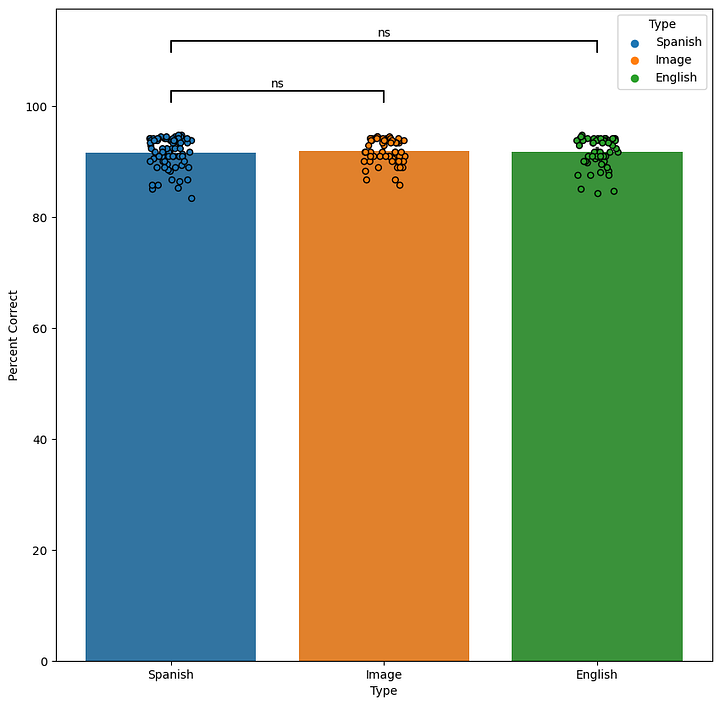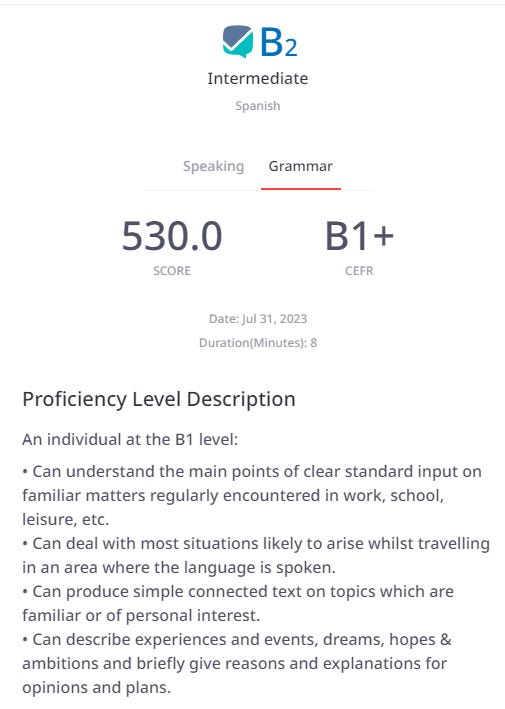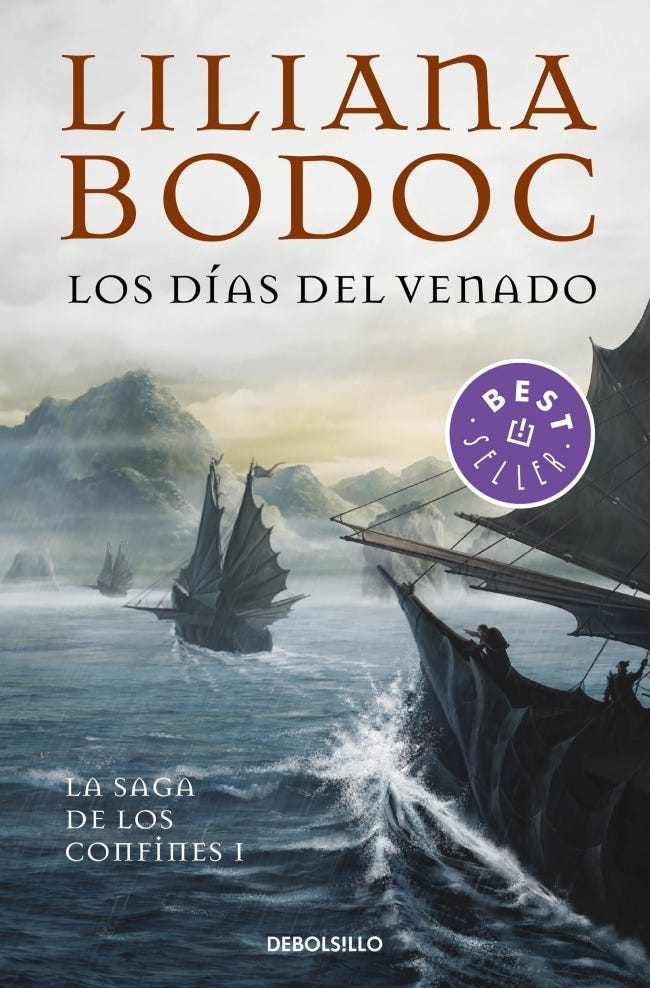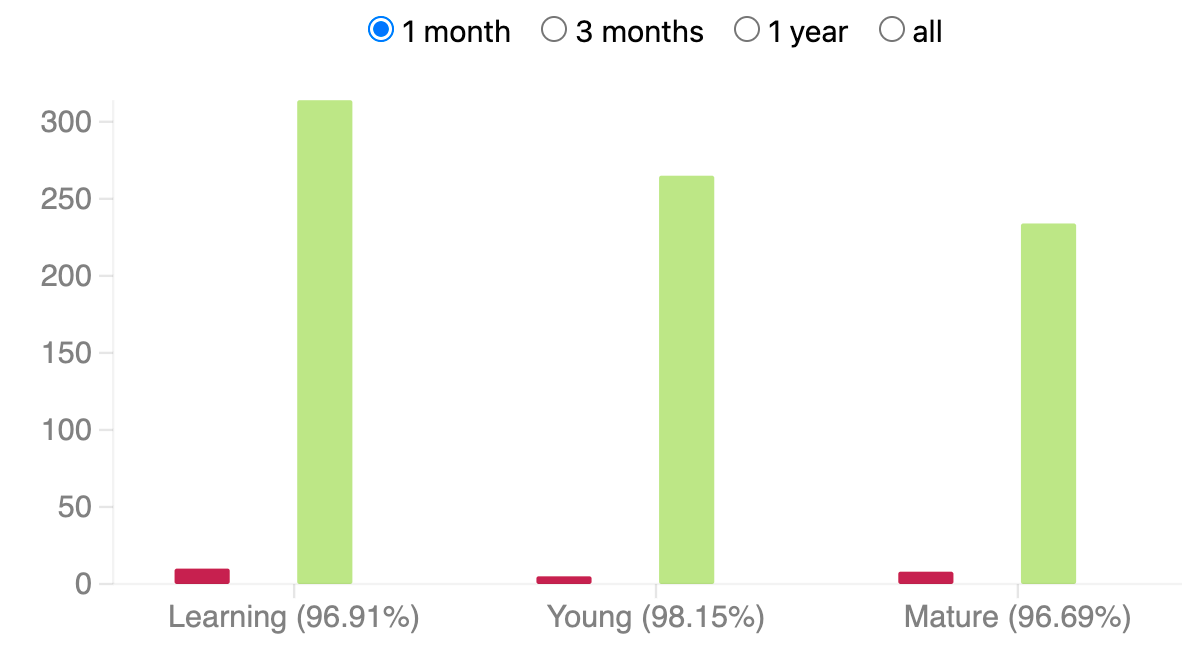Refold Approach to Language Learning: Spanish ~1200-Hour Update
Many steps forward, a few steps back. So it goes
This is my tenth update for my Spanish learning journey with the Refold approach. Welcome to everyone who is coming to this page from Medium. I’ve moved to Substack because of better customization options (mainly the ability to add other pages to the blog), and a general reduction in click-bait. Articles, as at Medium, will always be free, but there is an option to be a paid subscriber.
For my first update, see here.
For my second update, see here.
For my third update, see here.
For my fourth update, see here.
For my fifth update, see here.
For my sixth update, see here.
For my seventh update, see here.
For my eighth update, see here.
For my ninth update, see here.
For more information about the Refold approach, see here. For a basic Spanish Anki vocabulary deck, see here.
General Progress
Reached 1200 hours of immersion. Ramped up consistent writing and speaking output. Achieved a level of daily/weekly immersion consistency. Took a fluency test on iTalki Began to notice grammar concepts that will likely require deliberate study. Found a new way to measure anki retention. Realized the importance of balance between listening and reading.
Honestly things have been going great with Spanish. I’m getting in consistent immersion time every day, in part due to increased motivation for my 2-3 iTalki lessons a week. I’m really expanding outside of my domain of fantasy/medieval books and that’s exposing me to a lot of new vocabulary. However, as shown by my iTalki test, I have a long way to go with the language.
iTalki Test and Subjective Language Level
One of the most common questions I get in real life and on places like reddit is “What’s your level of Spanish like?” I can give a subjective answer of course, and I will later in this blog post, but sometimes it helps to have something concrete to point to. I bought a package from iTalki of 4 tests ($30) that looks at your speaking and grammar skills. I took the first test this July, and plan to take the others in December 2023 and June 2024. The test assess your speaking by playing a phrase and having you repeat it back. I found my understanding of the phrase to be near 100%, but I had trouble repeating back some of the content, especially with grammatical structures I wasn’t that familiar with. iTalki gave me a B2 level for speaking, which is pretty amazing considering I’ve only spoken for 10 hours tops. I was hoping for something higher, but the test doesn’t asses reading or listening, which are my best skills. Refold works guys.
Grammar did not go so well. This was just a multiple choice section asking for the correct word choice. I haven’t studied grammar explicitly since high-school Spanish in 2015, so this didn’t go great. I think a combination of explicit study (so I can recognize conjugations), and more immersion should improve this score.
Subjectively, I think B2 is accurate for speaking, and I would say reading and listening are both closer to C1. Reading may even be C2: I successfully read Jose Ortega y Gasset’s Rebelion de Las Masas, which I’ll talk about more in the reading section. I think improving at this point, up to taking the CEFR C1/C2 test and passing, is going to require a lot more time, probably years of low-level immersion and some explicit grammatical study. I’ll talk more about my thoughts going forward in the Future Plans section of this post.
Reading
I like reading a lot. Before picking up Spanish, reading in English was my principal “mental” hobby (with running being my principal "physical” hobby). Thus, I think I can come off as a little bit biased towards reading as compared to listening as a primary input method. The research is pretty contradictory as to which is actually more “effective” at increasing comprehension fastest (Krashen and Steve Kaufman are big proponents of reading, whereas Refold in general, as well as Pablo from Dreaming Spanish favor listening). I’ve decided I don’t care anymore. One of my goals for learning Spanish, as highlighted in my New Year’s blog post from 2022 was to immerse myself in a foreign culture through literature. Reading is literally doing that, and the goals that require better listening (i.e. CEFR test, Camino de Santiago) will have their day. That said, if you are trying to follow in my footsteps, a bit less reading is probably better for your overall progress.
I read quite widely across genres (domains as Refold calls them) between this update and the last. I started with another translation: Joe Abercrombie’s Un Poco De Odio. Reading these is a good way to get through my TBR pile in English, but problematic for a number of reasons in Spanish. First of all, translations don’t seem to really have the same sentence structure as native content. There’s much less use of the lo/la particles, just because English doesn’t use “it” (the directish translation) in quite the same way. Secondly, the library doesn’t have a lot of Spanish translations, mainly original native content. I’m trying to save money on books as much as possible, especially if the author is no longer alive to support.
I then split my reading between three different groups of books: what I’m subjectively calling “easy”, “medium”, and “hard”. Easy books are books I can read without putting in too much effort, about one necessary look up per chapter. Right now, I’m using Pedro Urvi’s Sendero de Los Guardabosques series as that. I read book 5, which I review here. I also read a very short, self-helpy 9 Hábitos Japoneses. Review incoming, but I think Ikagi is the superior book in this genre.
In the “medium” group are books that I miss about one sentence or grammatical structure ever 2-3 pages that impacts my understanding. I miss the exact meaning of 2-3 words every page, but it doesn’t impact understanding. In this category, I read the summary of Ortega y Gasset’s philosophy: Ortega y Gasset para Profanos, the Black Mirror-esque novella Los Cuerpos del Verano and am currently reading Liliana Bodoc’s fantasy epic La Saga de Los Confines. Check out the reviews for more information on the books.
In the hard group, I’ve been tackling the primary source essays of José Ortega y Gasset, starting with his collection: La Rebelión de Las Masas. This is hard not only because of the Spanish, which is very “literary”, but also because I don’t know a lot of the other philosophy he is discussing. Reading this book has solidified my desire to learn French, as it seems like straight quoting French, rather than translating, is the norm in Spanish philosophy as well as English.
I’ve started collecting all the books I’ve read that were originally written in Spanish and sorting them into these three categories on another page of my blog. This should be updated monthly.
As I stated last time, I’ve been chunking reading into 30-60 minute segments, and making sure I summarize my thoughts afterwords. This has been great for the philosophy books I’ve read. I’ve also noticed the slowing down paying off in increased awareness of sentence and grammatical structures. That awareness, coupled with sentence mining, is slowly turning into understanding.
Total Immersion time: 602 hours, approximately 4.6 million words
Future Plans: Do some deliberate rereading. Sendero de los Guardabosques Saga de las Confines, Ortega y Gasset. Reread La invención de Morel.
Open Questions: How did you go from noticing unknown grammar to internalizing them?
Sentence Mining
I’m up to 1658 cards now with a 92.81% lifetime mature retention rate, but a higher 96.69% rate in the past month. This retention rate is back to being too high again, probably because I’m adding too much context to my sentences. I might start marking cards as easy to increase interval time more quickly.
I’ve added new cards from the various books I’ve read and from new vocab that I’ve learned in my italki lessons.
Updated Stats
I’ve continued to count Anki time as immersion time. I’m at about 28 hours spent on Anki, doubling that for card-making gives me about 56 hours of immersion from Anki.
I also continued by A/B, A/C testing from last time. I’ve switched to a completely different method of analyzing this data. Using DB browser for SQ lite, I extracted the lapse/reps for each card and sorted them into bins based on the tag type. I lost about 600 of my cards this way, somehow, but I still have 1000 data points.


Using this method I find no significant differences between the three categories, even when I remove cards that I never got wrong. So much for the back of the card mattering for retention!
I think there’s too many confounders with these cards to really judge the effectiveness of a specific card back or not. The context of the sentence on the front of the card probably makes a very big difference if I remember the card or not. There will be no more A/B/C testing: I’m just going to make cards in Spanish most of the time, image when possible, and English if I have no other way of remembering the word. It’s also possible that it’s time to quit making new Anki cards (and perhaps spend the effort priming myself for a new language?)
Open Questions: when do you quit Anki.
Writing
I’ve continued to write Goodreads reviews for the books that I’ve listened to and read. I’ve started posting them weekly-is on this blog, and I also go over them with a tutor on iTalki. I’ve also started taking notes in Spanish while reading in Spanish. Kind of cool to feel the thoughts flow. As I wind-down intensive immersion in Spanish, and wind it up in another language, writing will be something I focus on more.
Open Questions: What methods do you use to practice writing?
Listening
Honestly haven’t done much listening since last time. I do get a fair amount of listening on weekly basis from iTalki lessons, but I haven’t been consistently listening to podcasts or audiobooks. I have discovered a new podcast: Tampoco es el Fin del Mundo, which is a positive collapse-adjacent podcast in the style of short interviews. I’ve been trying to do at least one of these a week. The rest of my listening consists of relistening to audiobooks, such as Olividado Rey Gudú for 30 minutes before I go to sleep.
I’ve also continued to listen to music. I’m not counting it as immersion, but I’ve found some great earworms since last time. Nacha Pop and El Canto Loco slap.
Total Immersion time: 561 hours
Future Plans: 30 minutes of listening to audiobooks daily, iTalki lessons, and 30 minutes of an interview conversations every other day.
Open Questions: Do you sentence mine musical lyrics? Film recommendations?
Speaking
I want to echo what I said last time about outputting: it’s extremely motivating. I’ve got into a consistent schedule of 2-3 lessons a week with four different teachers. This provides daily motivation to improve my Spanish. I also think I’m a lot more extroverted than I like to think, and it’s really fun to hear from people on the other side of the globe. I’ve noticed my speaking improve tremendously in the past 15 hours. My main three problems are gender, conjugations, and searching for words. I expect those to improve with more practice and more reading.
I’m taking iTalki lessons with four different teachers from different Spanish-speaking countries. Rafael from Spain, Alejandro from Colombia, Misael from Argentina, and Beatriz from Spain. I dropped Katherine from last time because I didn’t find her lessons to be very useful (she didn’t do a lot of guiding the conversation or providing corrections). I really like all of my teachers, and each does things in a slightly different way. Rafael is a deep thinker and loves to talk about global issues, and philosophy. He’ll provide corrections with some grammatical explanations at the end of the lesson. Alejandro is a fellow language learner who deeply believes in comprehensible input. He’s a writer that’s trying to get an animated series of the ground, and has lots to say about literature, film, and language learning. He’ll give me corrections in a document at the end of the lesson. Misael is an Argentinian living in Brazil, who’s spending a lot of time learning Portuguese, so he understands the language learning struggle very well. He’s also very organized and has a google classroom set up for me. Beatriz is also awesome: she studied English literature is school, and we have a lot to talk about when it comes to books and music. Rafael is a very booked teacher, but both Alejandro and Misael are definitely looking for new students. Check them out if you are looking to start outputting!
Output time: 18.25 hours
Explicit Grammar
None, but I think I need to. Main issue is I just don’t know verb conjugations for some of the more uncommon tenses (mainly subjunctive).
Future Plans
I’m nearing the end of my explicit Spanish learning journey. It’s going to be millions of more words until I really feel comfortable reading in Spanish, and probably another couple hundred hours of speaking. I don’t need to pass any formal Spanish exam any time soon, but I will see what my level is at with the iTalki tests in December 2023 and 2024. If those go well, I may try to study for the CEFR test in 2025, after a year spent with another language.
Other Languages
I have decided in 2024 I will start either French, Italian, German, or Latin, and put Spanish on the back burner. There are books in other languages I want to read, and I think my Spanish is at a high enough level where I can start something else and lose very little with some maintenance reading and iTalki lessons. I’m giving myself until 2024 to start this so I can give Spanish one final push to hopefully get to a comfortable C1 level.
Meditation
Have been bad at doing this. However, I am trying to deliberately pause after media consumption and think about what I just read. Hoping this will be helpful to improve my comprehension. Sleep also has a huge effect.
Overall Impressions
Things are frankly going great. I hope to be back with 2-3 more updates by the end of the year, and many more book reviews. Happy immersing!
Open Questions: How did you go about transitioning to beginning an L3?
Full immersion link data link.
If you enjoyed this article, you can sign up for my mailing list here. I blog about language learning, biology, the science and art of learning, and many other things
Deus ex Vita







